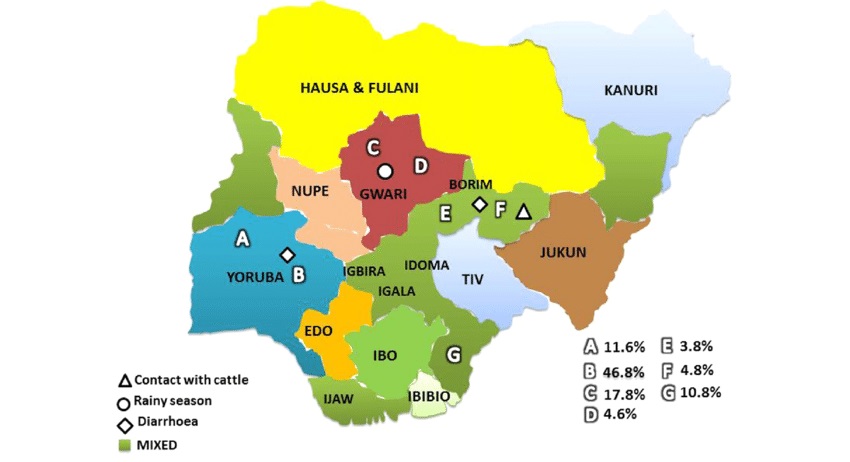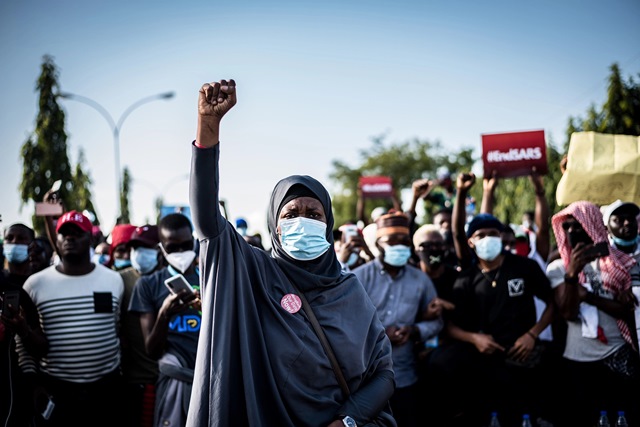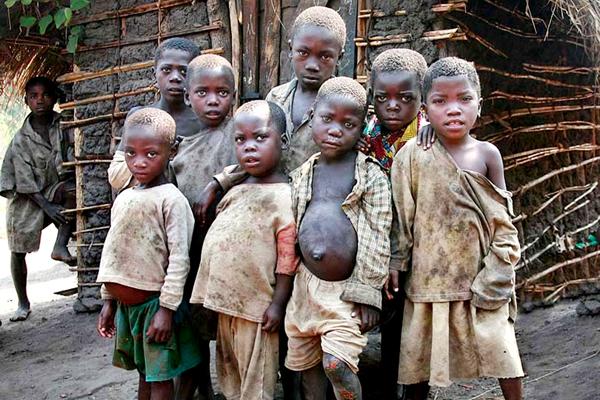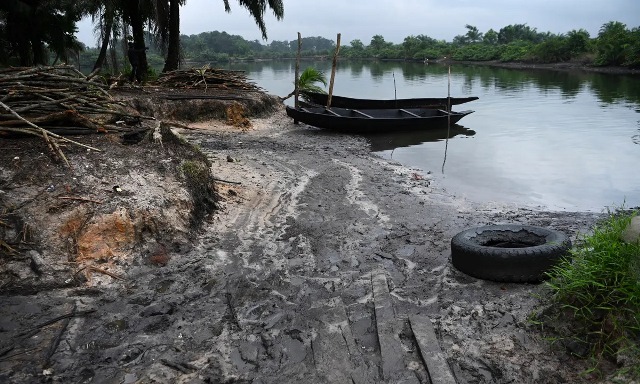Nigeria is a country with a rich cultural heritage and diverse tribal communities. Unfortunately, Nigerian tribes have faced various issues threatening their existence and well-being in recent times.
From the effects of globalization and modernization to political instability, ethnic conflicts, and economic issues, Nigerian tribes are struggling to adapt and survive in an ever-changing world.
In this era of rapid development and technological advancement, it is essential to examine the contemporary issues facing these indigenous tribes and explore possible solutions to address these challenges.
Read on as we take you on a journey of more discovery.

Importance of Examining Contemporary Issues Facing Nigerian Tribes
Examining contemporary issues facing Nigerian tribal communities is important for several reasons. First, it can help raise awareness of these communities’ challenges, including political instability, economic challenges, environmental degradation, and ethnic conflicts.
By highlighting these issues, policymakers, stakeholders, and the public can better understand the root causes and potential solutions.
Second, digging deep into the contemporary issues facing tribal communities can help to inform policies and programs that support these communities.
It is essential to understand the unique needs and perspectives of these communities to develop effective solutions that support their development and well-being.
Lastly, examining contemporary issues facing tribal communities in Nigeria can help to promote social justice and equity. Studying these issues can support long-term development and well-being by promoting a more equitable distribution of resources and opportunities.
Innovative Tech Solutions, Tailored for You
Our leading tech firm crafts custom software, web & mobile apps, designed with your unique needs in mind. Elevate your business with cutting-edge solutions no one else can offer.
Start NowGlobalization and Its Effects
Globalization has become an undeniable force that has transformed the world in many ways. It has opened up new economic opportunities, created a global community, and enabled the exchange of ideas and cultures.
However, the effects of globalization have been extensive and compounded, particularly on Nigeria’s tribal communities.
The impact of globalization on traditional tribal practices has been significant.
Many Nigerian tribes have been forced to adapt to new ways of life as they interact with other cultures. This acculturation process has led to the erosion of cultural identity and heritage, as traditional practices and beliefs are replaced by modern ways of life.
The economic challenges faced by tribal communities in Nigeria have also been exacerbated by globalization. The influx of foreign goods and competition from international companies have disrupted local markets, leading to the closure of small businesses and a decline in local industries.
As a result, many tribal communities have struggled to make a living and provide for their families.
Moreover, globalization has created a situation where the benefits of economic growth are not evenly distributed.
Instead, the wealthy few often reap the rewards of globalization while the poor struggle to make ends meet. This has created an economic divide that further marginalizes tribal communities and exacerbates poverty.
Furthermore, globalization has also led to environmental degradation, which has significant implications for Nigeria’s tribal communities.
The activities of multinational corporations have often resulted in the exploitation of natural resources, leading to deforestation, loss of natural habitats, and contamination of water sources. This, in turn, affects the livelihoods of tribal communities that rely on the environment for their subsistence.
Read: The Diversity of Nigerian Tribes: A Look at the Unique Cultures and Traditions
Political Instability and Ethnic Conflicts as Issues Facing Nigerian Tribes
Political instability and ethnic conflicts have long been issues facing Nigerian tribes. The country has a diverse population of over 250 ethnic groups, each with its own cultural traditions, language, and political aspirations.
The conflicts between these groups have often been fueled by political instability, which has created an environment of tension and mistrust.
One of the primary drivers of political instability in Nigeria has been corruption. The country has a long history of corrupt practices in government and public institutions, leading to a lack of trust in the government and its ability to deliver services to its citizens.
This has created a breeding ground for political instability, as citizens become disillusioned with the government and seek to address their grievances through other means.

The ethnic conflicts in Nigeria are also fueled by political factors, including competition for resources and political power. The struggle for resources, particularly in the oil-rich Niger Delta region, has been a significant source of conflict between ethnic groups.
Additionally, political power struggles at the national and local levels have often led to violent clashes between groups.
Seamless API Connectivity for Next-Level Integration
Unlock limitless possibilities by connecting your systems with a custom API built to perform flawlessly. Stand apart with our solutions that others simply can’t offer.
Get StartedThe effects of political instability and ethnic conflicts on tribal communities in Nigeria are significant. These conflicts often result in the displacement of people from their homes and the destruction of property. It also creates an environment of fear and mistrust, affecting these communities’ social fabric.
Furthermore, the impact of political instability and ethnic conflicts on tribal communities extends beyond the immediate effects of violence.
It affects the long-term development of these communities, as resources that could be used for education and economic development are instead diverted toward conflict resolution and rebuilding.
Economic Issues Facing Nigerian Tribes
Many of these communities face limited access to education, job opportunities, and basic infrastructure. This creates a cycle of poverty that is difficult to break and affects the long-term development of these communities.
Limited access to education is a significant challenge for many tribal communities in Nigeria. This often results in a lack of skills and knowledge, which makes it difficult for community members to find well-paying jobs.
In addition, the lack of education makes it harder for these communities to participate in the broader economy and take advantage of new opportunities.
The lack of job opportunities is another economic challenge facing Nigerian tribes. This is particularly true for those living in rural areas with limited industries and a lack of investment. As a result, it’s difficult for people in these communities to earn a living and provide for their families.
Moreover, the lack of basic infrastructure, including roads, electricity, and water, is a significant challenge for many tribal communities in Nigeria. This makes it difficult for these communities to access essential services, such as healthcare and education and limits their ability to engage in economic activities.
Poverty is a significant consequence of these economic challenges. It affects the well-being of community members, limits access to healthcare and education, and creates a cycle of poverty that is difficult to break.

This has significant long-term effects on the development of these communities, as it limits their ability to invest in education, healthcare, and infrastructure.
Environmental Degradation
The country is undoubtedly home to a diverse range of ecosystems, including forests, wetlands, and savannahs. Unfortunately, these natural elements are threatened due to human activities such as deforestation, mining, and oil exploration.
Deforestation is a major cause of environmental degradation in Nigeria. It is driven by the demand for wood for fuel and other uses and the expansion of agricultural land.
This has resulted in the loss of biodiversity and ecosystem services, such as soil fertility, water regulation, and carbon sequestration. Deforestation also leads to soil erosion, which affects agricultural productivity and contributes to climate change.
Mining activities also contribute to environmental degradation in Nigeria. The mining of minerals such as gold, lead, and zinc often involves the use of chemicals that can contaminate soil and water sources. This can have significant health impacts on local communities and result in the loss of biodiversity and ecosystem services.
Oil exploration is another significant contributor to environmental degradation in Nigeria.
The country is one of the largest oil producers in Africa. Oil exploration has resulted in significant environmental damage, including oil spills that have contaminated water sources and affected marine ecosystems. Burning gas associated with oil production also contributes to air pollution and climate change.
Transform Business with Custom CRM & ERP Solutions
Elevate your operations with a CRM or ERP tailored for you. Let’s build the perfect solution that others can't replicate—crafted to match your business's needs like no other.
Get Started
The effects of environmental degradation on tribal communities in Nigeria are significant. These communities rely on natural resources for their livelihoods and well-being, and the loss of these resources significantly impacts their ability to provide for their families.
Additionally, environmental degradation can lead to displacement and conflict as communities compete for dwindling resources.
Finding Solutions that Support Cultural Diversity and Protect Tribal Communities
Cultural diversity is a vital aspect of Nigerian society, and it is essential to find solutions that support this diversity and protect tribal communities.
These communities have unique cultural practices, languages, and beliefs that contribute to the richness of Nigerian culture. It is important to recognize and respect these cultural differences and ensure that policies and programs support the preservation of these traditions.
One of the significant benefits of supporting cultural diversity is the promotion of social cohesion. When individuals from diverse backgrounds interact and learn from each other, it promotes understanding and tolerance.
This, in turn, helps to build stronger and more resilient communities. This is especially important in Nigeria, where ethnic and religious diversity sometimes leads to conflict.
Protecting tribal communities also has important environmental and economic benefits. Many of these communities have traditional knowledge and practices that promote sustainable land use and conservation.
Protecting these practices can help to preserve biodiversity, improve ecosystem services, and promote sustainable development.
It is essential to find solutions that support cultural diversity without compromising the rights and well-being of tribal communities.
This requires engaging with these communities and understanding their needs and perspectives. It also means addressing the root causes of the challenges facing these communities, such as poverty, limited access to education, and inadequate infrastructure.
Investing in education and infrastructure can help to create opportunities for these communities and support their long-term development. Additionally, policies that promote equitable access to resources and opportunities can help to reduce disparities and support the well-being of all Nigerians, regardless of their ethnic background.
Before you go…
Hey, thank you for reading this blog to the end. I hope it was helpful. Let me tell you a little bit about Nicholas Idoko Technologies. We help businesses and companies build an online presence by developing web, mobile, desktop, and blockchain applications.
We also help aspiring software developers and programmers learn the skills they need to have a successful career. Take your first step to becoming a programming boss by joining our Learn To Code academy today!











